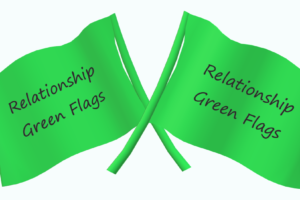10 Types of Aggression
Comments from Kathryn, the author of this blog and a licensed clinical social worker. The following is a brief excerpt from my book: Be Angry, But Not Aggressive: 7 Proven Skills for Managing Your Anger. As a licensed clinical social worker (LCSW), I wrote this book because I saw many clients in my therapy practice struggle with expressing their anger in a nonaggressive manner.
While people who are passive or passive-aggressive with their expression of anger tend to be emotionally harmful to only themselves, people who are aggressive can be emotionally and physically harmful to themselves and others. The following are examples of different styles of aggression:
Addictive Aggression
People who are “addicted” to the feeling of expressing their anger frequently go to places “looking for a fight”. The expression of aggression can feel like a rush or a chemical high similar to drugs. The goal of the person with addictive anger is twofold: the excitement of the physical release as well as the excitement of observing the effect of their aggression.
The person with addictive anger knows their aggression will likely get them in some sort of “trouble”. However, because the immediate gratification of aggression can feel so good, virtually any “punishment” seems “worth it”.
Deliberate Aggression
Deliberate aggression is not necessarily about the feeling of anger at all. It has just become a great method for them of getting what they want as quickly as possible. It is really planned aggression. Deliberate anger is all about manipulation and control.
When someone uses this strategy, it tends to have a cumulative effect, meaning the person using deliberate anger starts off yelling and spewing. The next time, s/he only has to be loud. The next time, just “a look” may be enough to control.
Displaced Aggression
The feeling of anger becomes directed at an “innocent bystander”. You feel angry because your manager criticized you in front of your peers. You don’t want to lose your job, so instead of talking back to your manager, you later become verbally aggressive with a co-worker.
This misplaced aggression is really the act of transferring uncomfortable feelings from someone who seems like they have more power than you do to someone whom you feel has equal or less power than you do.
Faux Aggression
Another way of referring to faux aggression is to call it “fake anger”. The person using faux anger doesn’t actually feel anger at all! It is all fake, a ploy, used to supposedly motivate others. It is usually effective in short, quick spurts, but fails to motivate for the long run.
This is a strategy that has been used for decades by coaches to fire up a team at half time, by the activist firing up a group before a big protest, or by a personal trainer hoping to motivate a person to work harder during their workout.
Justifiable Aggression
Justifiable aggression seems like there is “good cause” or justification for the anger, for example, climate change, racism, sexism, cruelty towards animals, etc. The problem with this anger is that it never ends. It robs you of your peace of mind and hurts your soul. While there can certainly be great social improvements, how will you ever know racism and sexism have become irradicated from the world?
They feel they have every right to feel the way they do because after all, the other person has broken the “rules”. They believe that their anger is for a good cause.
Overwhelmed Aggression
Overwhelmed aggression occurs when you feel that a situation or circumstance is beyond your control. People who have been passive “for too long” can feel frustrated, overwhelmed. Overwhelmed aggression can occur when you have taken on too much responsibility at work and don’t feel you will be able to accomplish everything that has been assigned to you.
It can also occur when an unexpected life event occurs, for example, a divorce, a house fire, becoming a day-to-day parent to your grandchildren. When your ability to cope with stress is pushed to the limit, you may “come out swinging”.
Paranoid Aggression
People who feel threatened by others or believe everyone is out to “get them” can be described as having paranoid aggression. They see everyone else as being angry, but not themselves. They tend to have poor judgement. They are insecure, and they confuse their feelings with the feelings of others: “I am not angry, you are!”
This type of aggression occurs when someone feels irrationally threatened by others.
Retaliatory Aggression
Retaliatory aggression is also known as revenge. This is one of the most common types of aggression. It is perceived as defense for a perceived wrong. It is deliberate and purposeful with the intent of having someone else feel as hurt as you do. It is a form of intimidation, again with the intent of asserting control over a person, situation or outcome.
Retaliatory aggression usually occurs as a direct response to someone else challenging you, raising their voice, lashing out at you, being aggressive with you. This type of aggression is an example of “tit-for-tat”, an “eye-for-an-eye”, “I will give you what you gave me.”
Self-Abuse Aggression
People with self-abuse aggression turn their aggression inward, for example, negative self-talk, alcohol or substance abuse, cutting, an eating disorder or suicide. Self-abuse aggression is driven by feelings of hopelessness, guilt and low self-esteem.
Their self-destructive aggression of being verbally, emotionally or physically abusive becomes so intense they may start to drive others away. For many, it is difficult to be around a person who is imploding. When people flee for their own self-preservation, it deepens the feelings of loneliness, alienation, and guilt for the aggressive self-abuser.
Shame-Based Aggression
The shame-based aggressive person turns their feelings of inadequacy outward. These individuals are extremely sensitive. Being in a relationship with someone who has shame-based aggression is like walking on egg shells. You are always worried about offending them.
The person with shame-based aggression feels unworthy and unlovable. This makes them aggressive. When someone ignores them or says something negative about them, they take it as proof that the other person dislikes them as much as they dislike themselves. In turn, they then ridicule, blame, ignore and criticize others, usually the very people that they love.
The display of aggression is very complex. Aggression never results from the words or actions of someone else. Aggression originates from a belief that the aggressive person is right and that their behavior is rational and just. They convince themselves that there is a logical, reasonable motive for their aggressive actions. It all makes sense to them.
Take Away Point
There are many forms of aggression, none that are particularly helpful in life and in relationships. Perhaps Be Angry, But Not Aggressive: 7 Proven Skills for Managing Your Anger can help you identify the form of aggression you are using to express your anger.
With warmest regards,
Thank you so much for reading this blog. If you enjoyed the content, please check out other blogs at:
https://relationshipsrelearned.com/my-blog/
https://rvingnomads.com/blog/
In addition to blogs and articles, I have written a series of self-help books. To view these books, please go to my Amazon Authors Page or go to the Self-Help Books tab at the top of this page.
To be notified of future posts, please enter your email address and click on the Subscribe button.
If you live in the State of Maine or Texas and seeking individual therapy, please go to my Concierge Therapy website: www.kathynmaietta.com
| AI has not been used to create any content for my website, articles, blogs or books. All material is original unless otherwise noted. All photos and graphics within my website and blogs were taken or created by David Harrington or Kathryn Maietta. |











